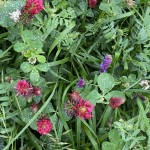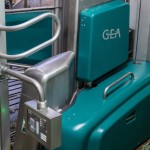WoolWorks on a mission to reduce emissions
Awatoto wool scourer WoolWorks is on a mission to strip carbon from its business and improve the sustainability profile of New Zealand wool.
Added 3 years ago
By Brenda Newth

Awatoto wool scourer WoolWorks is on a mission to strip carbon from its business and improve the sustainability profile of New Zealand wool.
The company recently announced it was replacing its gas fired boiler with a modern, efficient hot water heat pump at a cost of $2m, reducing its CO2 emissions by 24%. The project received $455k from the GIDI fund (Government Investment in Decarbonising Industry).
Nigel Hales, WoolWorks chief executive says that the new heat pump will save more than 9,500,000 kWh of natural gas each year and adds to the comprehensive carbon reduction programme that is already underway in the business.
“WoolWorks has significant climate mitigation goals. We have been approved to register our climate change commitment with Science Based Targets (SBTi) via a CO2 emissions reduction pledge.”
WoolWorks’ commitment is to reduce Scope 1 and 2 carbon emissions by at least 46% (of its 2019 baseline) by 2030, and is on the fast track to get there.
“With our aggressive decarbonisation programme we are set to achieve this by mid 2023. This achievement provides a significant opportunity for wool, wool grease or derived products to align with other SBTI supply chain partners to strengthen relationships and value.
“It is important to realise that having an early stage textile processor in New Zealand leading in this space that we are creating a massive platform for New Zealand Textile Inc to leverage from.
“Not only will WoolWorks be leading the field in terms of carbon emissions, it will also be linked to full circular eco-efficiencies. This combined with the fact that more research is being carried out on the makeup of wool and its embedded carbon content, (means that wool) is likely to resonate well with eco-focused consumers, who want a more natural, ethical and sustainable product to replace the manmade fibre plastics that are currently being used for textiles.
“It represents a significant opportunity for us to further differentiate and strengthen New Zealand wool with this important early stage process of wool scouring being significantly more sustainable than other global wool scouring operations, ahead of the wool going to local and global customers for manufacturing into finished products like interior textiles, carpets, insulation materials etc.”
Carbon reduction initiatives underway at WoolWorks:
Awatoto:
- Improved energy submetering
- Energy efficiency management
- Insulation
- Heat exchanger optimisation
Timaru:
- Decarbonisation project is well underway
- Project cost of $8.4m investment co-funded by EECA ($3.65m)
- Will reduce CO2 emissions by 85% (from 13,000T to 2,000T)
Hales says that the company’s decarbonisation programme has been well received by suppliers and customers, both here in New Zealand, and particularly offshore.
“There are now clusters of textile processors that are getting together and swapping their eco stories. This is driving greater change at a faster pace.
“Decarbonisation is only one part of a circular eco story. It is a very critical part but so are other factors, such as the total useful energy. WoolWorks excels in terms of total useful energy per kilogram of wool processed.
“We are looking at every aspect of emissions and discharges. This includes waste optimisation, packaging and energy.
“Over the coming 12 months, WoolWorks will be in a position to make many announcements regarding developments and improvements for early stage processing and wool in general, such as thoughts around wool being made up of at least 43% embedded carbon. This is currently not being recognised or accounted for,” Hales said.
Join the conversation
Be the first to leave a comment.
Leave a comment
All comments are reviewed before they are published on the website. Your email address will not be published.




Family-Owned Farm Embraces Regenerative Agriculture to Grow and Educate


